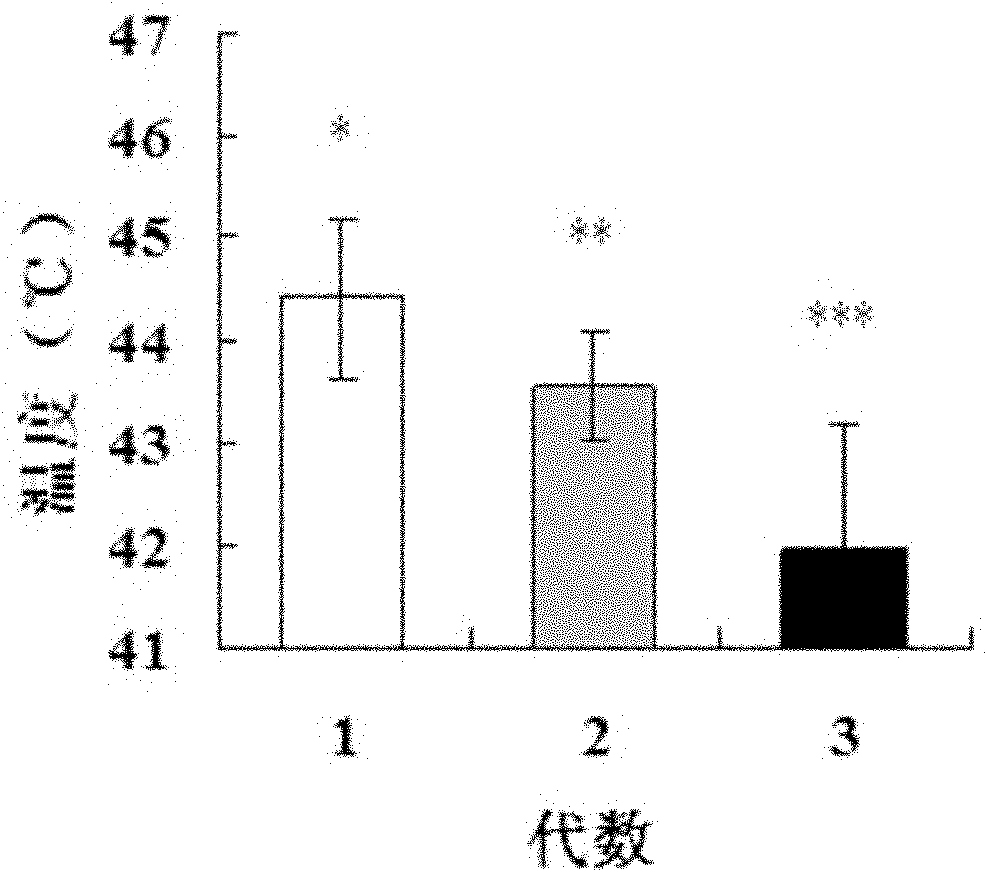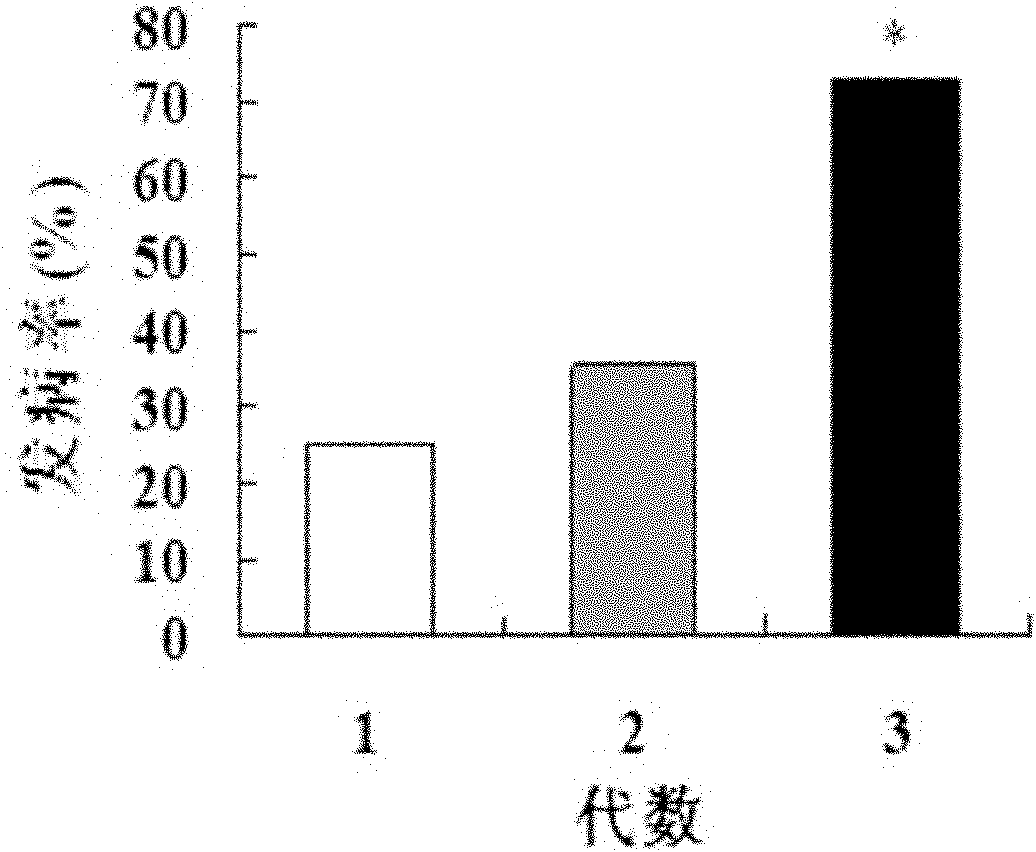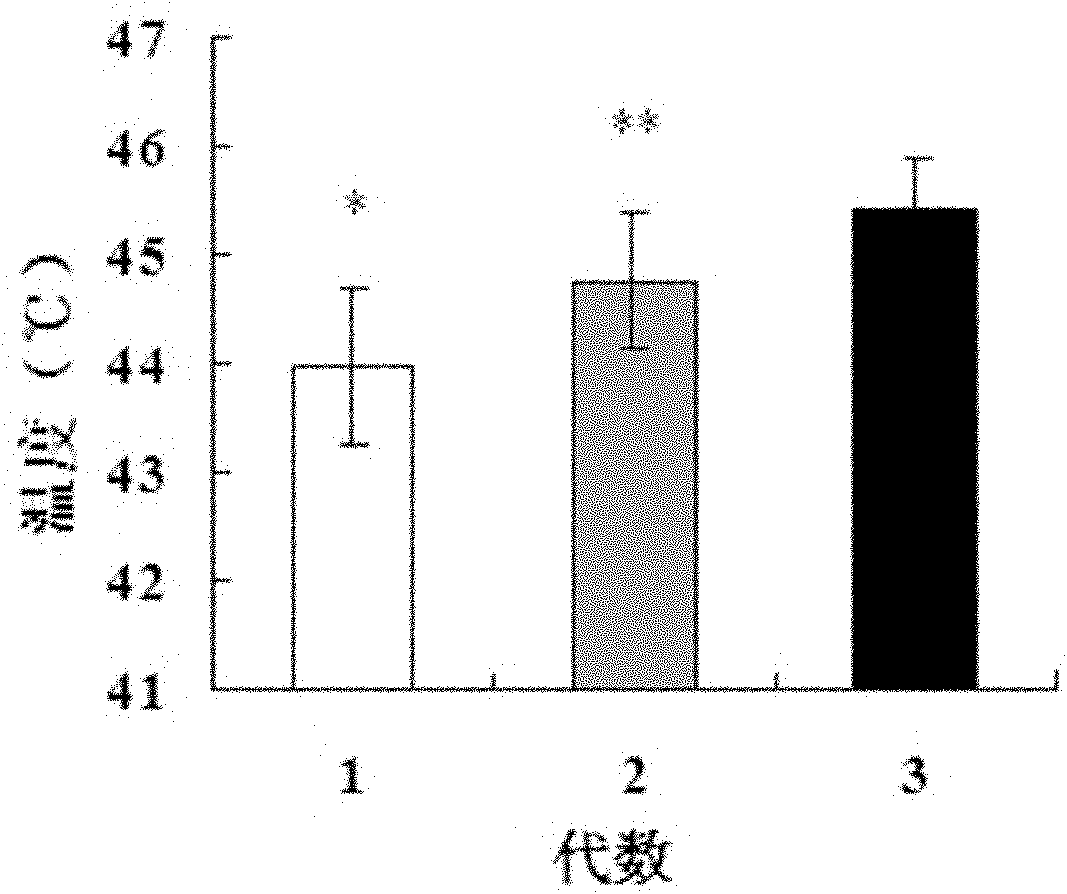Screening method of febrile convulsion model rat and application thereof
A screening method and model technology, which is applied in the fields of pharmaceutical formulations, preparations for in vivo experiments, animal husbandry, etc., can solve the problems of not being able to become animal models, low success rate of convulsions, and death rate of body surface burns, and achieve model induction. The effect of high success rate, maintenance of genetic predisposition, and short induction time
- Summary
- Abstract
- Description
- Claims
- Application Information
AI Technical Summary
Problems solved by technology
Method used
Image
Examples
Embodiment 1
[0054] A screening method for febrile convulsion sensitive model mice, the steps are as follows:
[0055] (1) In the initial screening experiment, 100 (half male and half male) 21-day-old normal rats with SPF grade were selected. Put the rat into a transparent glass cylinder (diameter 6cm, height 20cm), and the lower part of the glass cylinder has a plurality of small holes communicating with the outside. The cylinder was erected in a constant temperature water bath, and the depth of the water in the cylinder was adjusted by placing a plastic gasket on the bottom of the glass cylinder, so that only the head could be exposed when the rat stood along the wall of the cylinder. The temperature for the first screening is 43.0°C, the temperature for the second screening is 44.0°C, and the temperature for the third screening is 45.0°C. After each water bath for 4 minutes, the rats were taken out for observation. According to the 5-level scoring standard of febrile seizures, grade 3...
Embodiment 2
[0060] A screening method for febrile convulsion tolerance model mice, the steps are as follows:
[0061] (1) In the initial screening experiment, 100 (half male and half male) 21-day-old normal rats with SPF grade were selected. Put the rat into a transparent glass cylinder (diameter 6cm, height 20cm), and the lower part of the glass cylinder has a plurality of small holes communicating with the outside. The cylinder was erected in a constant temperature water bath, and the depth of the water in the cylinder was adjusted by placing a plastic gasket on the bottom of the glass cylinder, so that only the head could be exposed when the rat stood along the wall of the cylinder. The temperature for the first screening is 43.0°C, the temperature for the second screening is 44.0°C, and the temperature for the third screening is 45.0°C. After each water bath for 4 minutes, the rats were taken out for observation, and screened according to the 5-grade scoring standard of febrile convu...
Embodiment 3
[0065] Example 3: Gene chip expression profiling analysis of febrile convulsion sensitive and tolerant model mice
[0066] Using the information provided by the gene expression profile chip to conduct high-throughput information analysis, obtain gene functions, signaling pathways, and metabolic pathways involved in differentially expressed genes related to febrile convulsions, so as to gain a deeper understanding of the pathogenesis of febrile convulsions. The clustering heatmap is a hierarchical clustering of the samples and genes, and then it is drawn together with the heatmap. The expression of the same gene in different samples can be observed through the heat map, and the grouping of samples can also be verified according to the gene expression.
[0067] The experimental steps are as follows:
[0068] 1. Animal screening: From the first generation of 100 (half male and half male) 21-day-old SPF rats, use the above method to screen generation by generation, and finally se...
PUM
 Login to View More
Login to View More Abstract
Description
Claims
Application Information
 Login to View More
Login to View More - R&D
- Intellectual Property
- Life Sciences
- Materials
- Tech Scout
- Unparalleled Data Quality
- Higher Quality Content
- 60% Fewer Hallucinations
Browse by: Latest US Patents, China's latest patents, Technical Efficacy Thesaurus, Application Domain, Technology Topic, Popular Technical Reports.
© 2025 PatSnap. All rights reserved.Legal|Privacy policy|Modern Slavery Act Transparency Statement|Sitemap|About US| Contact US: help@patsnap.com



